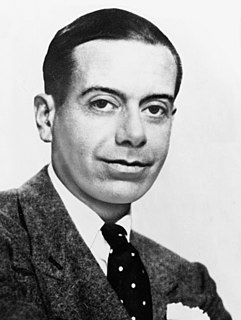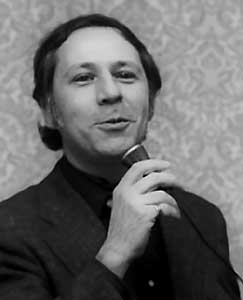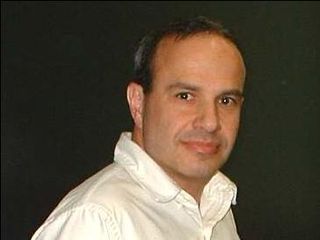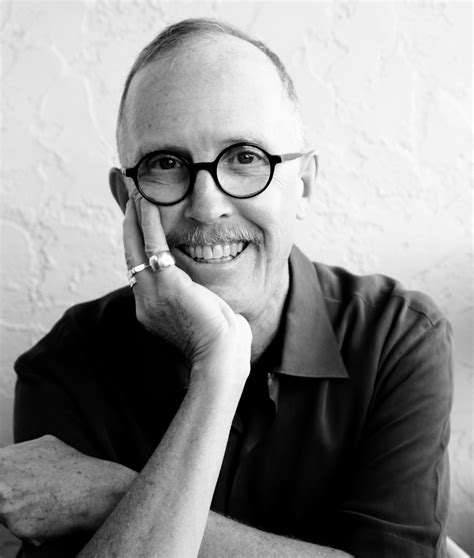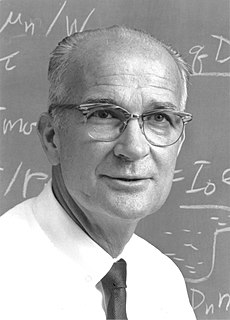A Quote by Cole Porter
You all have learned reliance
On the sacred teachings of Science,
So I hope, through life, you will never decline
In spite of philistine Defiance
To do what all good scientists do.
Experiment.
Make it your motto day and night.
Experiment.
And it will lead you to the light.
Related Quotes
Unfortunately, all life on earth - the only life we know - represents, for all its current variety, the results of a single experiment , for every earthly species evolved from the common ancestry of a single origin. We desperately need a repetition of the experiment (several would be better, but let's not be greedy!) in order to make a judgement. Mars represents our first real hope for a second experiment - the sine qua non - for any proper answer for the question of questions.
We've learned from experience that the truth will out. Other experimenters will repeat your experiment and find out whether you were wrong or right. Nature's phenomena will agree or they'll disagree with your theory. And, although you may gain some temporary fame and excitement, you will not gain a good reputation as a scientist if you haven't tried to be very careful in this kind of work. And it's this type of integrity, this kind of care not to fool yourself, that is missing to a large extent in much of the research in Cargo Cult Science.
In its essence the Gospel is a call to make the experiment of comradeship, the experiment of fellowship, the experiment of trusting the heart of things, throwing self-care to the winds, in the sure and certain faith that you will not be deserted, forsaken nor betrayed, and that your ultimate interests are perfectly secure in the hands of the Great Companion. This insight is the center, the kernel, the growing point of the Christian religion, which, when we have it, all else is secure, and when we have it not, all else is precarious.
I never have, above my signature, announced anything that I did not prove first. That is the reason why no statement of mine was ever contradicted, and I do not think it will be, because whenever I publish something I go through it first by experiment, then from experiment I calculate, and when I have the theory and practice meet I announce the results.
It is better to travel with hope in one's heart than to arrive in safety. . . . We should celebrate today's failure because it is a clear sign that our voyage of discovery is not yet over. The day the experiment succeeds is the day the experiment ends. And I inevitably find that the sadness of ending outweighs the celebration of success.
Every day we make our way through a moral forest, along pathways ever branching. Often we get lost. When the array of paths before us is so perplexing that we can't make a choice, or won't, we can hope that we will be given a sign to guide us. A reliance on signs, however, can lead to the evasion of all moral obligations, and thus earn a terrible judgment.
Are you feeling helpless when you think about the dark roads of the future? Then read the biographies of the great men! Learn their life stories; they will lead you to the light! Buddha will lead you to the light; Gandhi will lead you to the light! Men of wider horizons will broaden our own horizons!
The road will never swallow you. The river of destiny will always overcome evil. May you understand your fate. Suffering will never destroy you, but will make you stronger. Success will never confuse you of scatter your spirit, but will make you fly higher into the good sunlight. Your life will always surprise you.
The principle of science, the definition, almost, is the following: The test of all knowledge is experiment. Experiment is the sole judge of scientific "truth." But what is the source of knowledge? Where do the laws that are to be tested come from? Experiment, itself, helps to produce these laws, in the sense that it gives us hints. But also needed is imagination to create from these hints the great generalizations--to guess at the wonderful, simple, but very strange patterns beneath them all, and then to experiment to check again whether we have made the right guess.
Frequently, I have been asked if an experiment I have planned is pure or applied science; to me it is more important to know if the experiment will yield new and probably enduring knowledge about nature. If it is likely to yield such knowledge, it is, in my opinion, good fundamental research; and this is more important than whether the motivation is purely aesthetic satisfaction on the part of the experimenter on the one hand or the improvement of the stability of a high-power transistor on the other.
